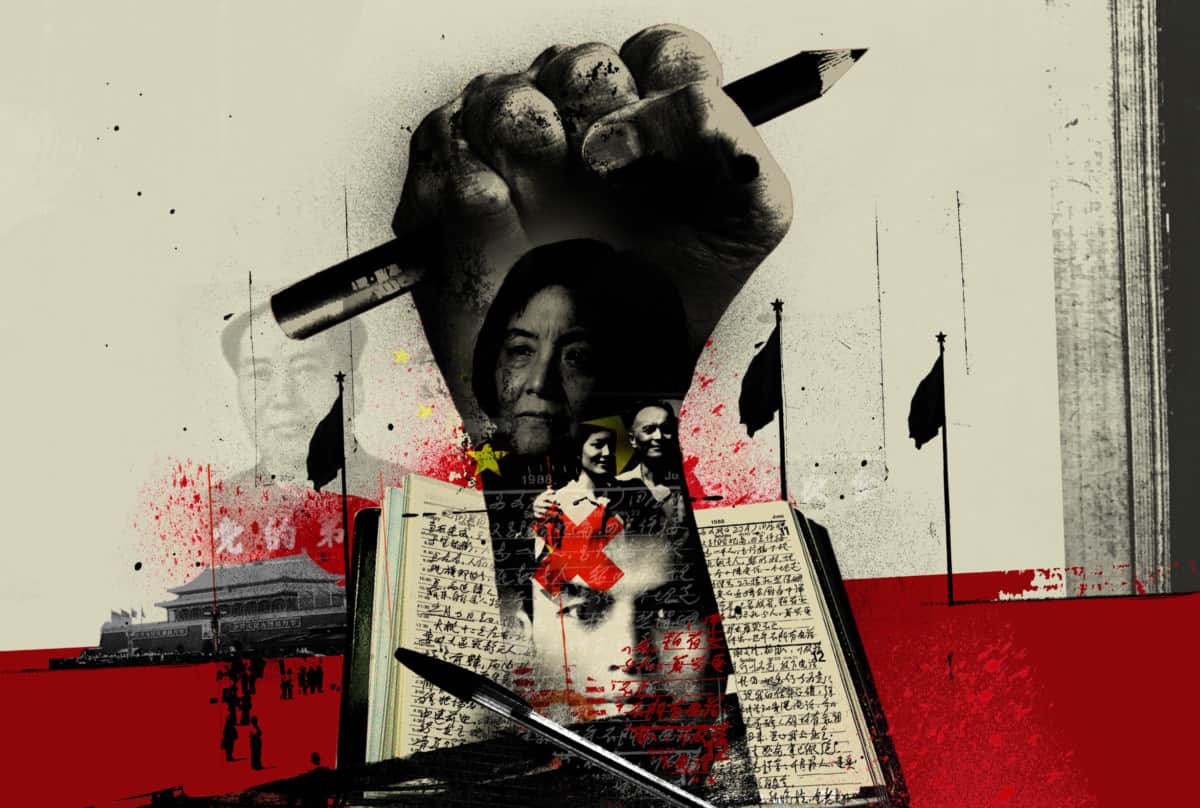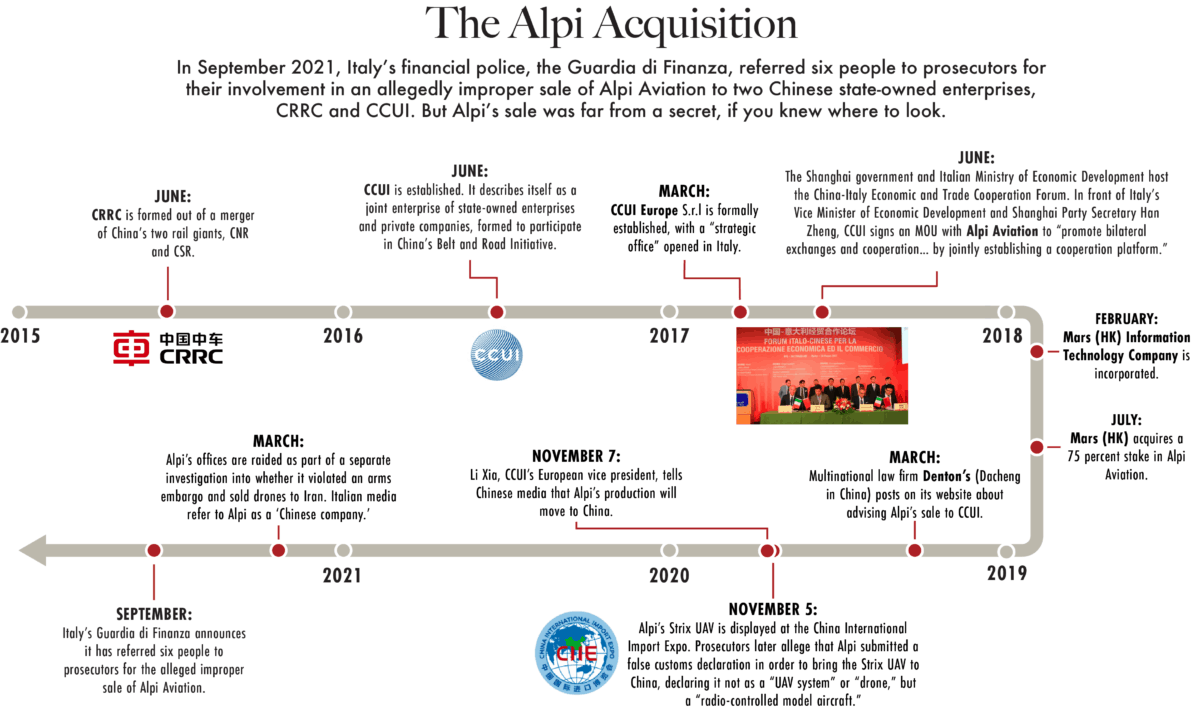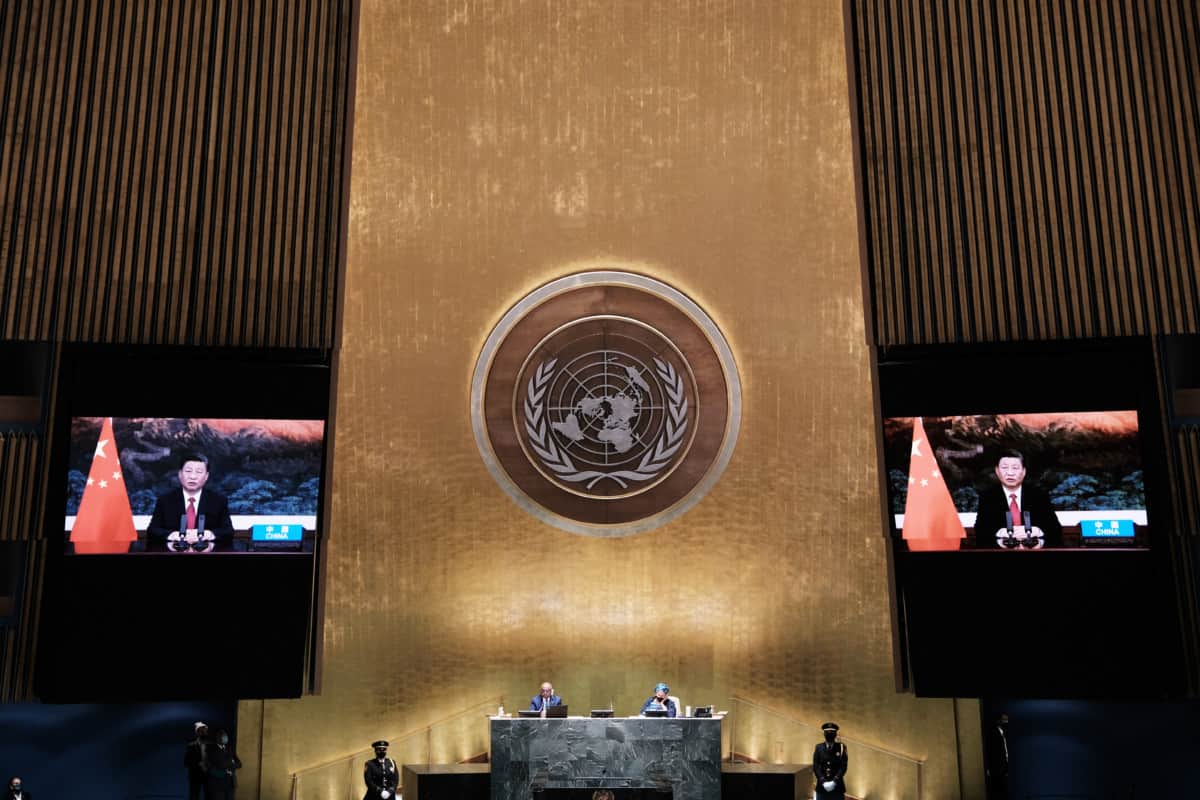Good evening. In 2019, a diary written by an official who operated at the apex of power in China showed up at Stanford University. The Chinese Communist Party — desperate to censor the study of its history — wants it back. The upcoming U.S. trial should be an easy win for academic freedom and preserving honest accounts of history, right? Not quite. As John Pomfret writes in this week’s cover story, the case of Li Rui’s diaries reveals competing values not simply between the United States and China but within the United States as well. Elsewhere, we have a Q&A with Wang Xiangwei, the former editor of the South China Morning Post, on why he’s optimistic about the U.S.-China relationship; infographics on Italy’s drone drama with China; an op-ed on why Xi Jinping’s ‘common prosperity’ reforms will do little to raise living standards for the average Chinese; and an op-ed about why the AUKUS security alliance doesn’t bode well for U.S.-China climate cooperation. If you’re not already a paid subscriber to The Wire, please sign up here.
Want this emailed directly to your inbox? Sign up to receive our free newsletter.

The Diary Duel
What should be done when values like the free-flow of information conflict with equally important values like the rule of law and the protection of personal and property rights? As John Pomfret reports this week, that question is at the center of the trans-continental legal battle for the diaries of Li Rui, a former secretary to Mao Zedong, with Stanford University pitted against Li Rui’s widow, who wants the diaries back.

The Big Picture: Italy’s Drone Drama
It took Italian investigators two years to catch wind of the fact that one of its drone makers, Alpi, had been sold to two Chinese companies, raising questions about the capacity of foreign investment review committees. This week, The Wire‘s infographics look at the timeline of the Alpi acquisition, its ownership structure, and the military connections of its Chinese buyers.
A Q&A with Wang Xiangwei

Wang Xiangwei is one of Hong Kong’s most prominent journalists, having worked for more than 20 years at the South China Morning Post, the city’s leading English-language newspaper. In this week’s Q&A, he talks to David Barboza about Hong Kong’s resilience, why it’s not in Beijing’s interest to turn Hong Kong into another Chinese city, and why, in the end, he’s optimistic about the U.S.-China relationship.
Wang Xiangwei
Illustration by Lauren Crow

‘Common Prosperity’ or Populist PR Stunts?
The recent regulatory storm, Sam Bresnick and Nathaniel Sher argue in this week’s op-ed, is best understood as an effort to consolidate popular support through a largely superficial campaign to reduce inequality. But browbeating billionaires won’t address structural imbalances in China’s economy. Instead, they argue, the Chinese leadership will need to be far more proactive if it is serious about so-called “common prosperity.”

The Right War for the U.S. and China
With less than two months until the crucial United Nations Climate Change Conference (COP26) in Glasgow, the United States and China must commit to cooperate on the existential challenge global warming represents. But bilateral relations remain burdened by mistrust, antagonism, and even warmongering — especially, Andrew Sheng and Xiao Geng argue, since the United States has initiated a futile arms race with the AUKUS security alliance.
Subscribe today for unlimited access, starting at only $19 a month.



